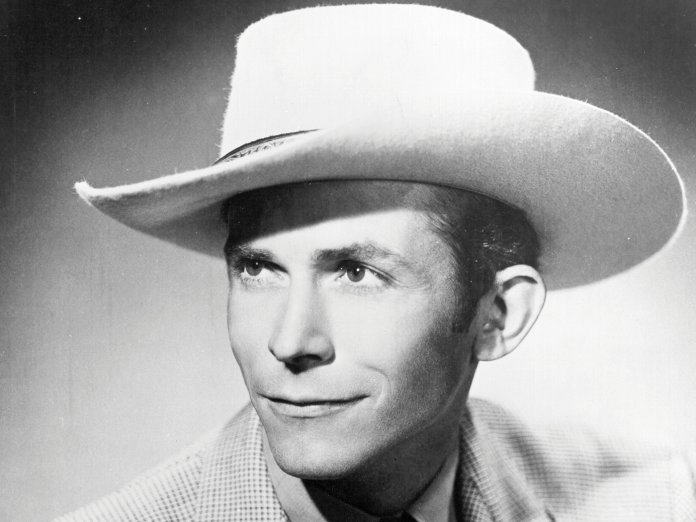Hank Williams enjoyed a simple metaphor as much as he liked a drink, so let’s compare him to a fine liquor. How would you like him served? On the rocks? Neat, undiluted? Two hundred per cent proof? I’m Gonna Sing is all of that and, swallowed whole, it makes an intoxicating case for a re-evaluat...
Hank Williams enjoyed a simple metaphor as much as he liked a drink, so let’s compare him to a fine liquor. How would you like him served? On the rocks? Neat, undiluted? Two hundred per cent proof? I’m Gonna Sing is all of that and, swallowed whole, it makes an intoxicating case for a re-evaluation of Hank’s gifts.
Since his death, the life of Hank Williams has been turned into a parable in which the singer’s life of pain – of the spine as much as the heart – was reflected in his music. Hank was 29 when he died in the back seat of his Cadillac in 1953, but his voice was ancient. The tragedy of Hank’s passing framed his reputation, and while he exists in the broader public imagination as the author of the jaunty country novelty “Hey, Good Lookin’” (a Southern-fried version of a Cole Porter ditty), the depth of his talent is to be found in his broader catalogue, where Williams walks the thin line between hurt and bottomless misery. In marketing shorthand, Hank Williams is sometimes referred to as “the hillbilly Shakespeare”, but the profound simplicity of his worldview is actually closer to the existential comedy of Samuel Beckett. Hank knows, even in his lighter moments, that life is a lonely pursuit; that buckets tend to have holes in them; that the best hope for happiness is to be found in the numbed void of the endless thereafter, in death.
The material on this 40-track compilation is drawn from the extraordinary Mother’s Best Radio Recordings, which arrived like messages from the other side in 2011, and have been released in various formats, including a 15CD box, complete with cathedral-style toy radio (with “working knob”) and a jigsaw. The comprehensive release aimed to recreate the carefree mood of the times, where Hank and the boys would drop in to sing a few numbers and sell the benefits of Mother’s Best flour on the Nashville radio station WSM 650. The recordings only survived because they were recorded onto 16-inch acetates to be played when Williams was out of town, and they captured the band in a more informal mode than the more familiar studio recordings.
This edit of the Mother’s Best recordings cuts back on the levity, focusing instead on the religious songs played by Williams at the end of his 15-minute morning segment. These were often dedicated to “sick and shut-in friends” and were mostly drawn from the hymns Williams encountered as a child raised on Southern gospel in Alabama. In the sleeve notes, Williams’ biographer Colin Escott quotes from an interview the great man gave shortly before his death. “My earliest memory,” he says, “is sittin’ on that organ stool by momma and hollerin’. I must have been five, six years old, and louder ’n anybody else.”
The recordings are from 1951, a good year for Williams, but also a terrible one. He scored six Top 5 hits, toured with Bob Hope and appeared on Perry Como’s TV show. But he was hospitalised for alcoholism and had surgery on his spine following a hunting accident. In this context, to hear Hank and the boys pouring the ethanol of harmony singing onto the fire and brimstone of “I Am Bound For The Promised Land” is to enter into a church where death is a blessed relief. Though lighter in tone and brisker in tempo, “I’ll Fly Away” has the same theme, a yearning for that bright morning, “when the troubles of this life are o’er”. Even when the tune is over-familiar, as on “the old-timer” “When The Saints Go Marchin’ In”, the acidic harmonies faithfully pick out the 19th-century tune’s apocalyptic intent.
You want it darker? “That Beautiful Home” is delivered complete with Hank’s intro, in which he notes his back pain. When he sings of a blissful place far over the sea, and of a saviour upon a white throne, the agony is evident.
There are upbeat moments – notably the title track, “I’m Gonna Sing”, and Hank’s own “I Saw The Light”, a song he wrote when emerging from a hangover after a late dance in Alabama. On that tune, Williams demonstrated how faithfully he had absorbed the manners of gospel. Without making a fuss, or breaking with the plainspoken directness that is the hallmark of all of Hank Williams’ work, “I Saw The Light” delivers sin, redemption, and Jesus arriving like a stranger in the night. “No sorrow inside”, Hank sings, as if such a thing might be possible.



